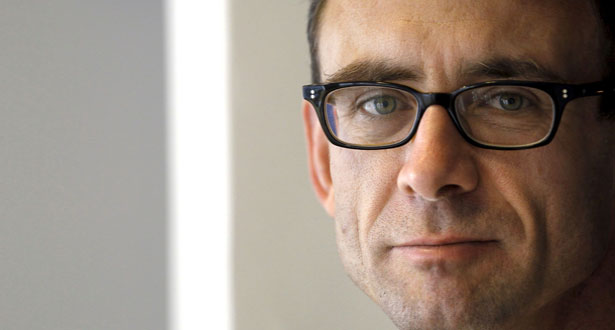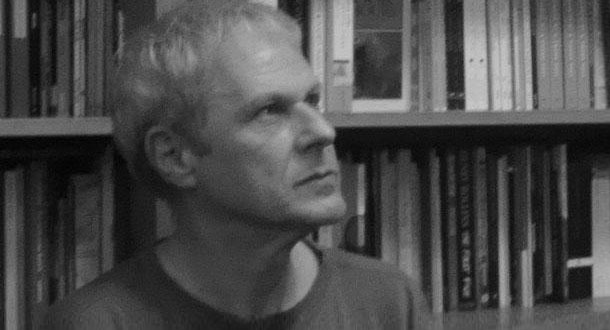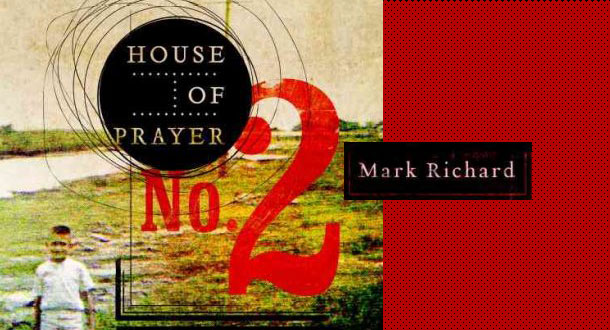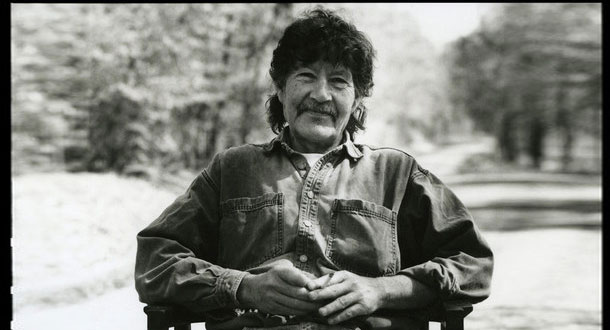From Hard Case Crime’s website:
Hard Case Crime is dedicated to reviving the vigor and excitement, the suspense and thrills—the sheer entertainment—of the golden age of paperback crime novels, both by bringing back into print the best work of the pulp era and by introducing readers to new work by some of today's most powerful writers and artists. Determined detectives and dangerous women...fortune hunters and vengeance seekers...ingenious criminals and men on the run...Hard Case Crime novels offer everything you want from a great story, all in handsome and affordable editions.
Founder and editor, Charles Ardai, was kind enough to stop by and answer a few questions about not only his press, but also his new book: the novelization of Shane Black’s The Nice Guys. Check out my review of the novelization HERE. And check out the interview below…
Hi, Charles. Thanks for joining us today. First, I'd love to know how you snagged this gig. I am a massive fan of Black’s films, so something like this feels like it would’ve been a dream job.
Oh, it was—a dream job, I mean. Shane’s been a friend of Hard Case Crime for a bunch of years, ever since we published Murder is My Business by Brett Halliday, the same author whose books inspired Shane’s film Kiss Kiss Bang Bang. So the chance to work together on something has been on my mind for a while. And as it happens, the company we work with to print and distribute our books happens to publish a lot of movie tie-in novels, and they were in discussions with Warner Brothers about the idea of a Nice Guys novel, and one of the editors there shot me an email to say, “You know a lot of crime writers, who do you think we should get to write this?” I immediately said, “Me.” I just checked with Shane first to make sure he liked the idea, and happily he was thrilled.
What kind of information about the film were you given prior to writing?
It certainly helped that Shane and I have a history, since we could just email back and forth about character motivation and so forth. “When Ryan says such-and-such in the diner scene, did you mean it this way or that way?” That was handy. In terms of materials, I had the shooting script and a rough cut of the film, and then Shane sent me some earlier drafts—one that they’d done for a possible TV series, one that was set in the present day, etc. He also showed me a note he wrote to Ryan and Russell before shooting started, talking about their characters. It was all enormously helpful. A good novel doesn’t confine itself to describing what happens on the movie screen, it goes into the characters’ heads and shows them to you from the inside. You view the world through their eyes, their minds. Some of my favorite parts of the book are about Russell Crowe’s character’s youth, picking avocados and reading Spinoza. None of that is in the movie—I made it up. But I wouldn’t have had the confidence to make it up if I hadn’t gotten a really great grounding in who these guys are from Shane.
Have you seen the film yet? How do you compare it to the novelization?
Yes. I watched the rough cut about a hundred times while working on the book, and then I went to the premiere in New York when Shane and the boys came through on their way to Cannes. It was great. I love Shane’s writing, and the actors just relish the hell out of it. Now, there are differences between the movie and the book, little things I put in just for the fun of it that you won’t find in the movie. But the two are recognizably the same. It’s not like I gave the movie a different ending. Though I guess I did give it a different opening scene.
I was able to catch a viewing over the weekend and—predictably—I loved the hell out of it. I also think the film benefited from having read your novelization first. While, yes, I knew what would technically happen in the film because of what I read, the characters also came across as these very real, developed human beings. Especially Healy, who has this whole fantastic backstory found only in the book. Watching the film, you see Crowe on screen and you know what his character has been through, the shit he’s struggled with, and it’s sort of this secret between the reader and the story because most of it can only be found in the book. I’ve never made it a habit to read novelizations, but damn, if they’re as rich with life and creativity as your The Nice Guys, I might have to pick up a few more. This is all a very long-winded way of me asking you that if you could write the novelization for any film already released, which would you pick? Anything in particular you’d want to add to the story?
Oh, gosh—any film ever made? That’s such a wide range to choose from. Of course, many of my favorites came from books originally, like The Godfather or Out of the Past or The Vanishing. And some of the ones that remain aren’t crime films, like Cinema Paradiso or Top Hat. But just looking at crime films? It might be fun to write a novel based on The Last Seduction, or Clint Eastwood’s wildly underrated A Perfect World. One that I’ve actually considered doing is Woody Allen’s Match Point. That really is a Hard Case Crime novel just waiting to be written. But somehow I’ve never quite gotten around to reaching out to Woody Allen about it. Maybe I will.
What would I add to the story? Well, probably not a lot—I’m choosing those movies because I already think they’re pretty great. But I think I could add a lot to the characters. There’s a way you can flesh characters out on the page that just isn’t possible on film.
What unique challenges did you encounter that you wouldn't have faced writing a normal novel?
The deadline—I had only two months to write the book! Fortunately, I’m a hard worker and I got it done in 27 days. I also, obviously, didn’t have the freedom to take the plot in entirely novel directions. I had to follow the storyline of the movie, or else it wouldn’t be a novelization, it would be a spinoff novel. I may well write one of those too, eventually, if readers want one, but for this first book I needed to deliver what’s promised on the cover. But those aren’t bad constraints to have. I like working fast—that’s what the old-time pulp writers did—and working from Shane’s screenplay is a privilege. He’s just so good.
27 days! Holy crap. What are your normal writing routines (if any) and how did they change in order to complete the book in less than a month? Also, I would kill to read a series of detective novels starring March and Healy—and, of course, March’s daughter. Please do this.
I didn’t exactly stick to a normal writing routine for this one – I couldn’t possibly have gotten it done if I had. What I did was wake up every day at 2:30am and write non-stop until my daughter woke up at 6:30am. Every day for 27 days, with a rough cut of the movie in one corner of my screen and a print-out of the script in my lap. Wish I could tell you I smoked non-stop too, just to complete the picture, but I didn’t. Didn’t drink, either. Just typed, typed, typed.
And yeah, I’d love to do more with these characters. All three of them. Bring them into the 80s. Now Holly’s turning 18, Regan is president, E.T. is in theaters, someone’s putting cyanide in Tylenol capsules, and the boys are hard at work on a new case. It would be fun.
You’ve been doing Hard Case Crime for over ten years now. What are the most common stories you’ve encountered in the slush pile? What’s something you haven’t seen yet but desperately wish to find one day?
 Every other story I get seems to be something about Russian mobsters, or a Hollywood detective story, or something that explicitly echoes the style of Elmore Leonard, or something about a hit man—and how many of those things can I publish? Even if you write a good one, it’s competing against all the others. It’s not like I’m going to publish ten books all about Russian mobsters. I’ve already got a dozen wonderful Quarry novels by Max Allan Collins—it would take a lot for me to buy someone else’s hit man novel on top of that. And now we just did this Hollywood detective story, so what are the odds I’ll buy yours if you send me one tomorrow? Every day I get query letters that say something like, “I bet you haven’t seen something like my book before,” and my answer is, I bet I have.
Every other story I get seems to be something about Russian mobsters, or a Hollywood detective story, or something that explicitly echoes the style of Elmore Leonard, or something about a hit man—and how many of those things can I publish? Even if you write a good one, it’s competing against all the others. It’s not like I’m going to publish ten books all about Russian mobsters. I’ve already got a dozen wonderful Quarry novels by Max Allan Collins—it would take a lot for me to buy someone else’s hit man novel on top of that. And now we just did this Hollywood detective story, so what are the odds I’ll buy yours if you send me one tomorrow? Every day I get query letters that say something like, “I bet you haven’t seen something like my book before,” and my answer is, I bet I have.
What are we looking for? That’s much harder to say, except in very general terms: wonderful writing, characters that live and breathe, tight and compelling plots with a lot of velocity and cleverness. But I can’t say I want a book set in this country or that field, or a heist novel rather than a murder/adultery plot. I don’t know what I want until I see it. But believe me, when I do see it, I know. I wouldn’t have said I wanted a mystery set in the art world, but Richard Vine—a first-time novelist, not someone I’d ever heard of—sent me SoHo Sins, and it blew me away. And it’s set in the art world.
You just have to write a brilliant book, that’s all. If you do that, I might even go for it if it’s about a hit man for the Russian mob.
For any writers hoping to send something your way, what best advice can you give them for standing out?
Read a lot of books. A lot of books. Because then you’re much less likely to repeat the same plots, the same characters, even the same phrases without realizing it. I read hundreds of books a year. If you read only one or two, you won’t know what’s overdone, what’s too damn familiar, what was fresh in 1960 but is tired today.
Then sit down and write a lot. Get the clichés out of your system, and only once you’ve done that do you submit a manuscript to a publisher. Don’t send the first thing that comes out of your word processor, unless you’re one of the lucky few who’s an honest-to-god prodigy. Write, write, and write some more and let me see you tenth effort, not your first. If you were a chef, you wouldn’t serve me the first dish you ever cooked. You aren’t any good at anything until you’ve done it a lot. So do it a lot.
Beyond that I can really only say don’t imitate. We all love Chandler, and we all love Elmore Leonard. But Chandler didn’t write like Leonard, and Leonard didn’t write like Chandler, and you shouldn’t write like either of them. If you do, consciously or unconsciously, you’re just a cover band wearing a mop-top wig and strumming a McCartney tune. That can be fun, but it won’t get you published. Not by us, in any event.
Of course, I say that having just published a book of my own in which I worked very hard to imitate Shane’s voice. What can you do. Every rule has exceptions, and novelizations are an obvious exception. But barring that—be yourself. I don’t need a second-rate Chandler. I need a first-rate you.
Thank you once again for stopping by and chatting. Before you go, what are you working on next? And what else can we expect from Hard Case Crime in the future?
We still have a lot of good stuff coming this year, starting with an astonishingly strong first novel called SoHo Sins by Art in America editor Richard Vine. It’s set in the New York art world at the turn of the century—Sinatra is dead, but the Twin Towers still stand—and it will simply blow you away.
Then in October we have a brand new Quarry novel, Quarry in the Black, from Max Allan Collins, coming out around the same time the new Quarry TV series is set to debut on Cinemax. In a timely twist, the story is set in the weeks leading up to a controversial presidential election, with Quarry being hired to kill a Civil Rights leader who is campaigning for the Democratic underdog.
In November, we’ve got Sinner Man by Lawrence Block—a novel with a lot of history, and one that none of Block’s fans has ever read. It’s the very first crime novel he ever wrote, back in 1960, but he didn’t own a copy and in fact wasn’t even certain it ever got published. It turns out it did—in 1968—but only under a different title and a fake name, and then it disappeared for the next half century, until someone somehow turned up a copy and recognized it for what it was. Larry wrote a new afterword describing this wildly improbably find, and also revised the book, and it’s going to be a real treat for his fans.
Finally, in December we’ve got an even bigger discovery—a never-before-published detective novel called The Knife Slipped by Perry Mason creator Erle Stanley Gardner! This was going to be the second book in what eventually became the 29-book “Cool & Lam” series, but it got rejected back in 1939 because Gardner’s publisher felt it was too vulgar to publish. Well, that was then; it’s certainly not too vulgar for readers in 2016 (we’re not shocked by a woman describing herself as a “nymphomaniac” anymore), and I’m absolutely thrilled to get to publish it.
And then there’s more good stuff coming in 2017—but we’ve got to keep some things under wraps, don’t we? We wouldn’t be much of a mystery publisher if we didn’t…

About the author
Max Booth III is the CEO of Ghoulish Books, the host of the GHOULISH and Dog Ears podcasts, the co-founder of the Ghoulish Book Festival, and the author of several spooky books, including Abnormal Statistics, Maggots Screaming!, Touch the Night, and others. He wrote both the novella and film versions of We Need to Do Something, which was released by IFC Midnight in 2021 and can currently be streamed on Hulu. He was raised in Northwest Indiana and now lives in San Antonio.

.jpg)




